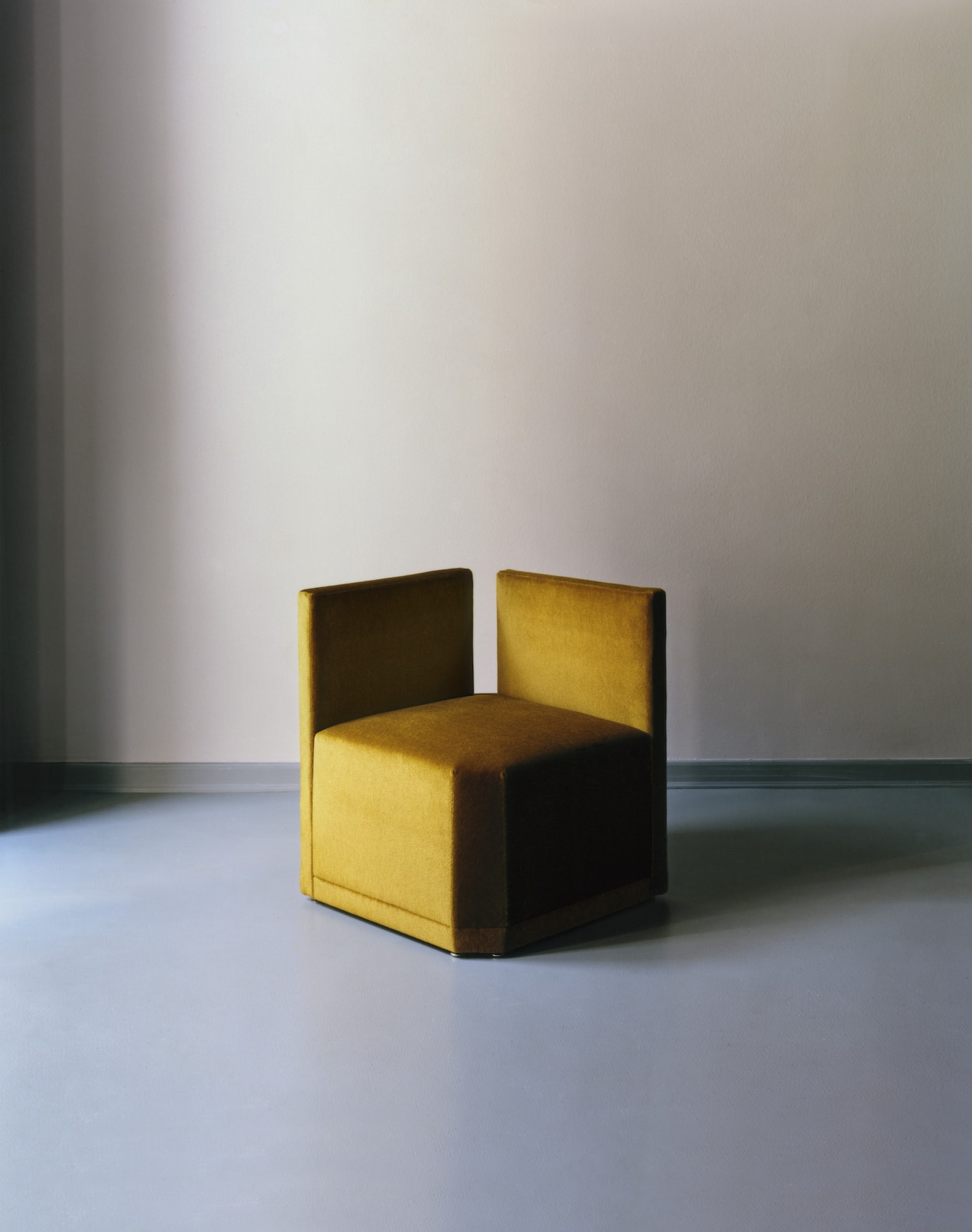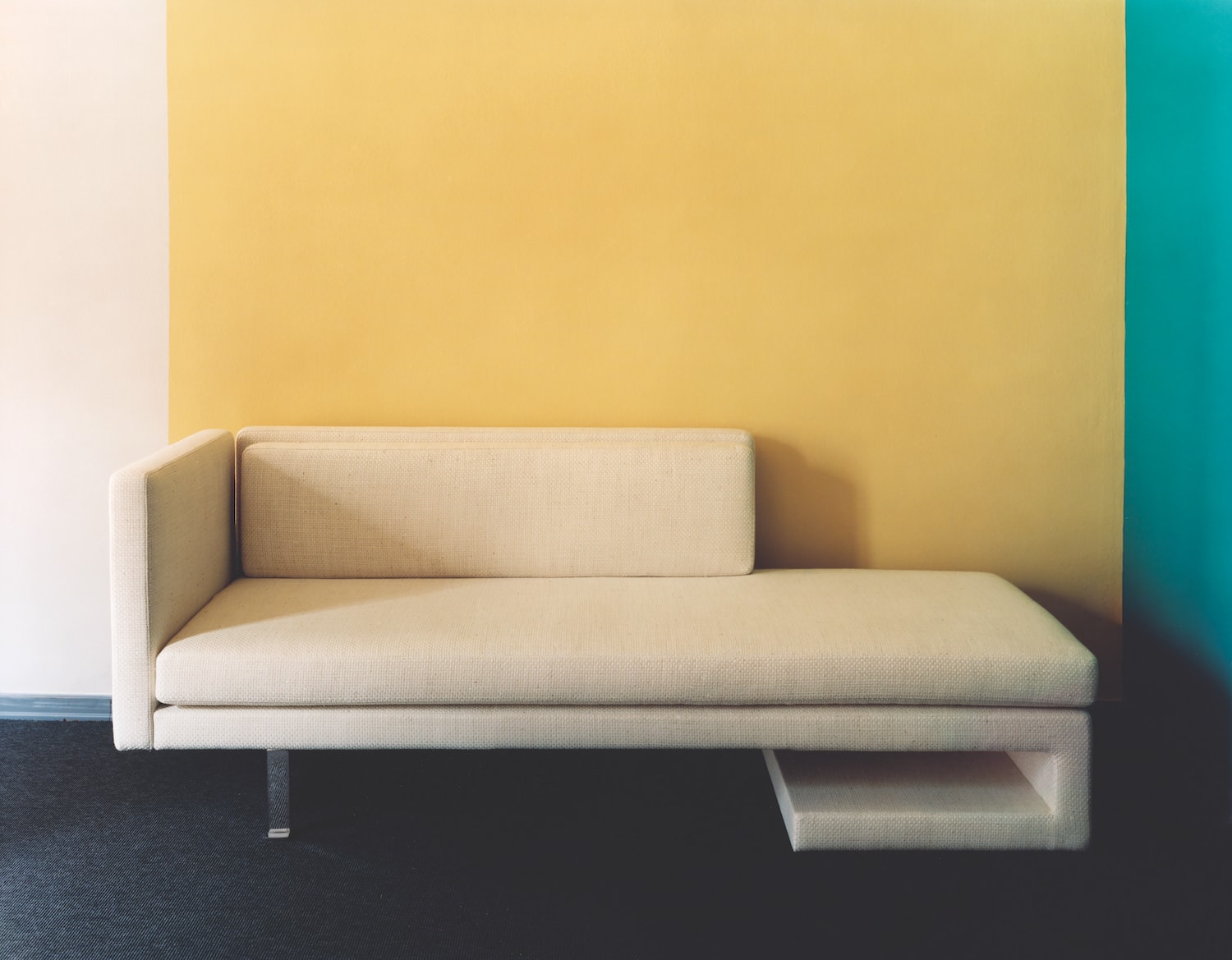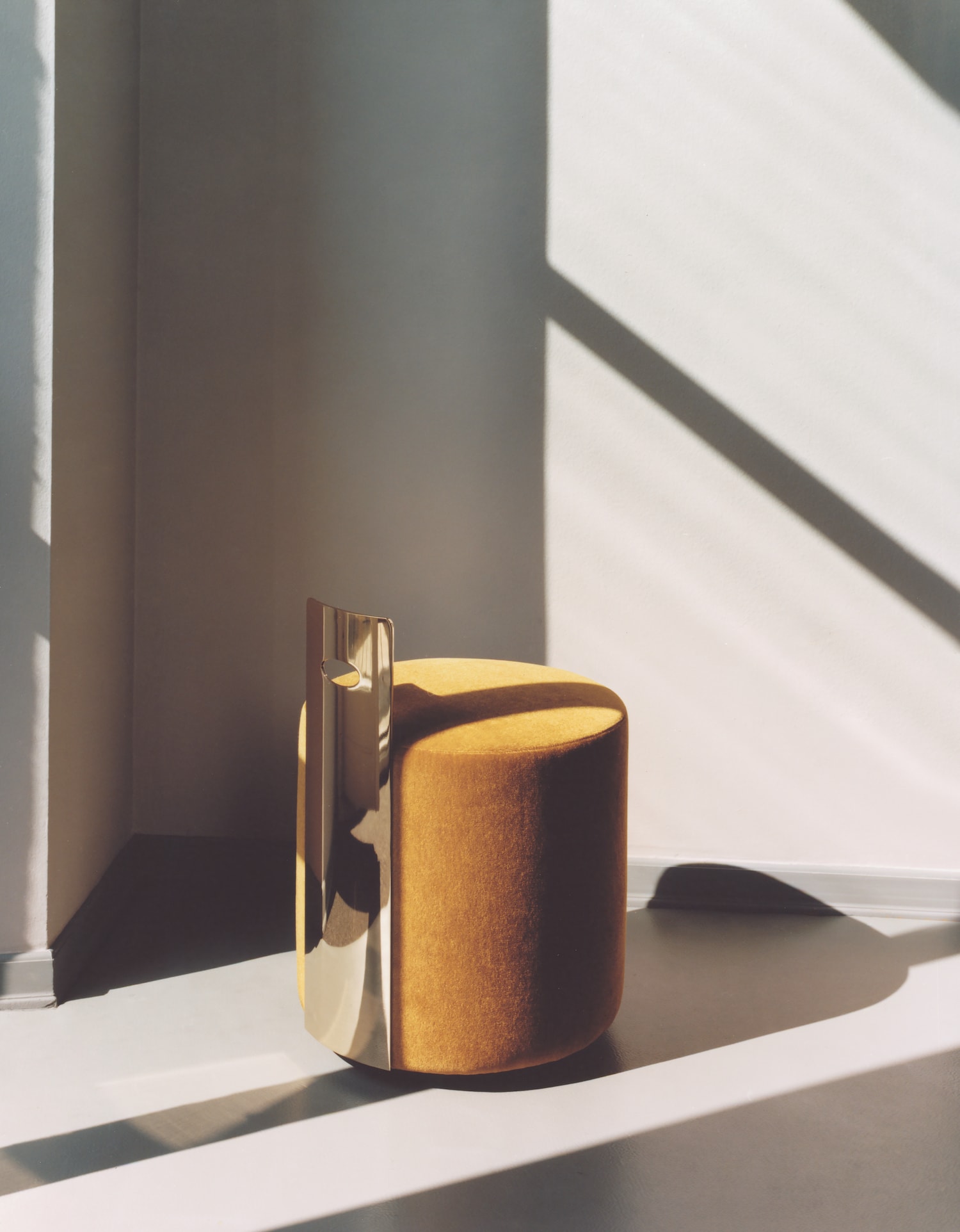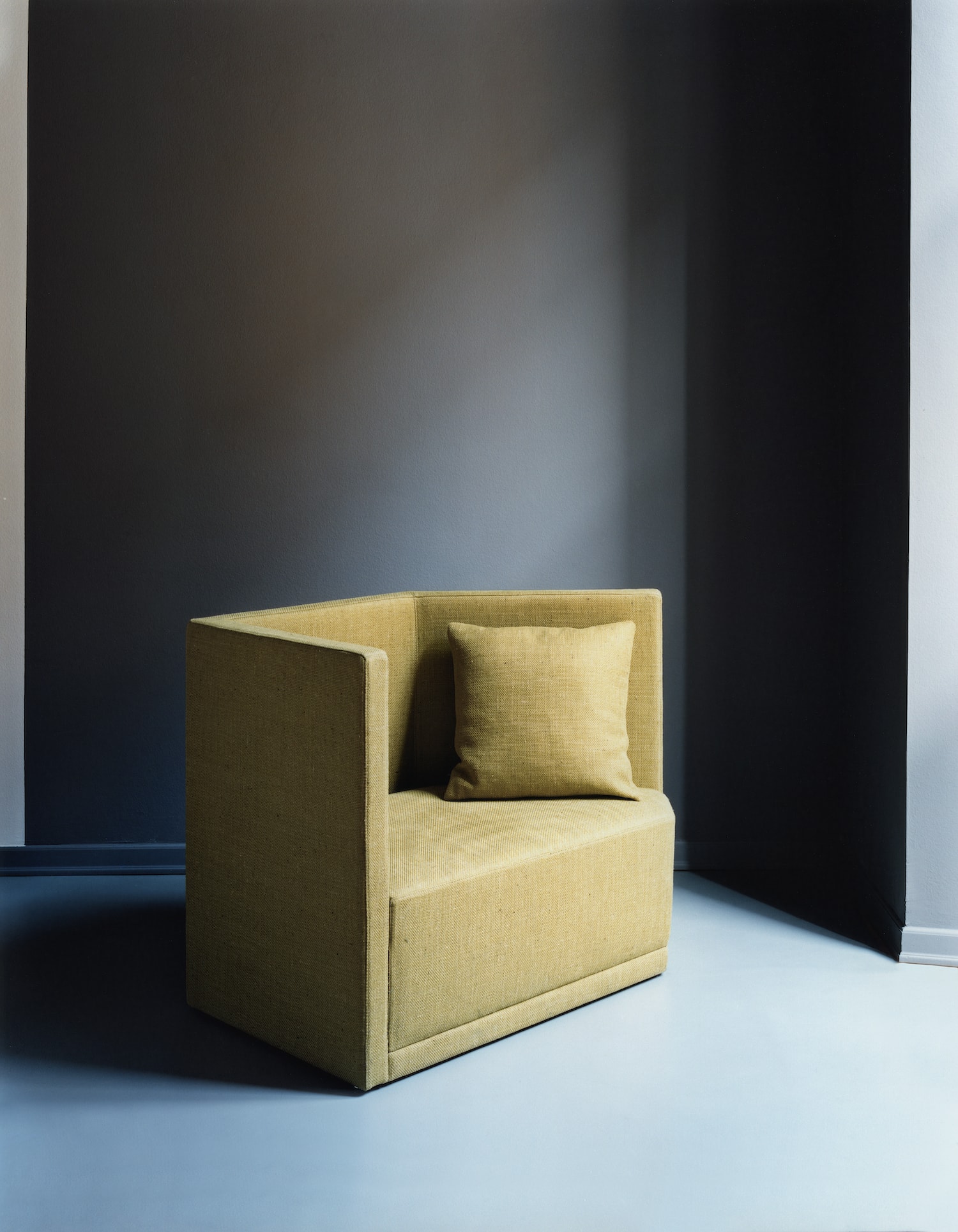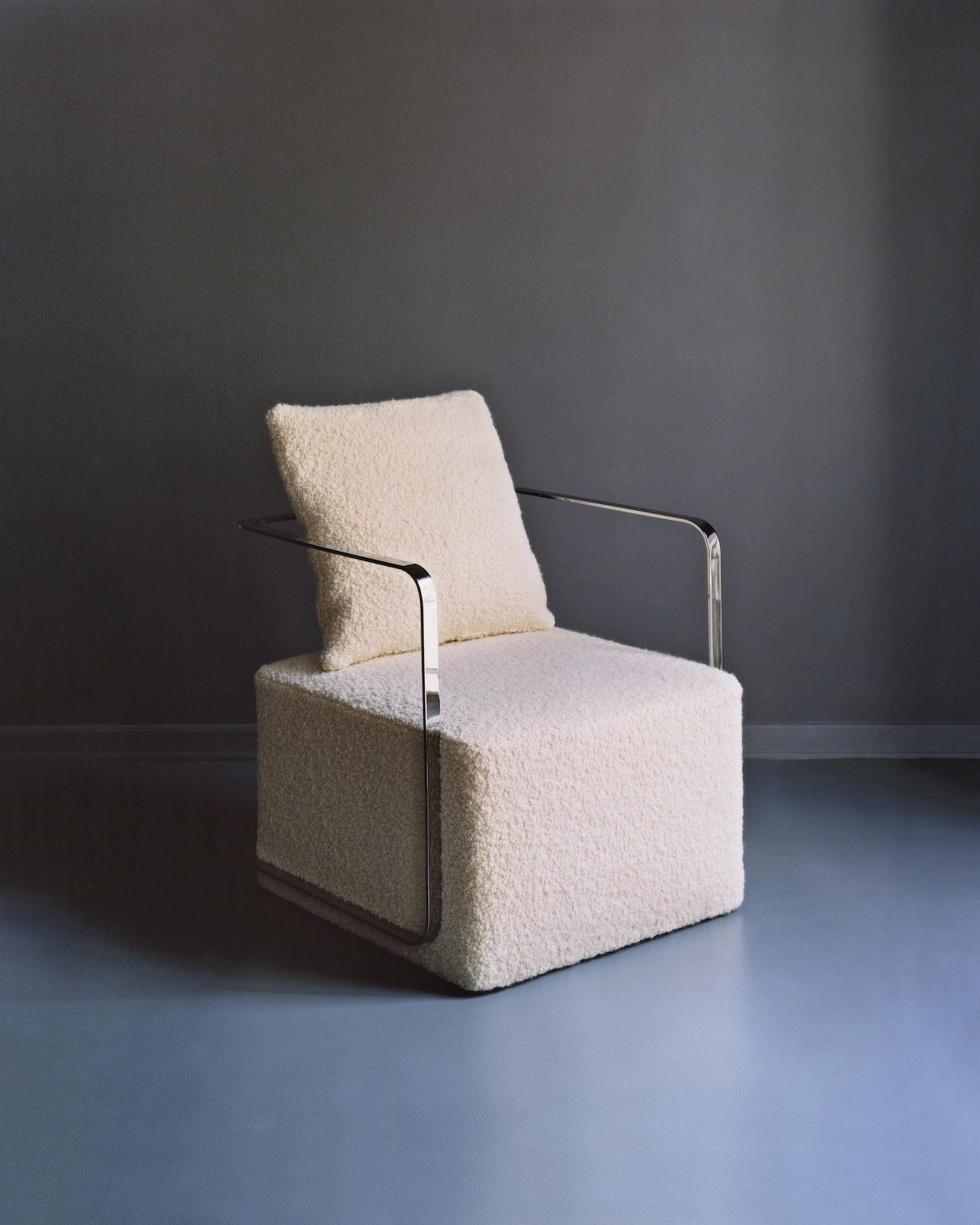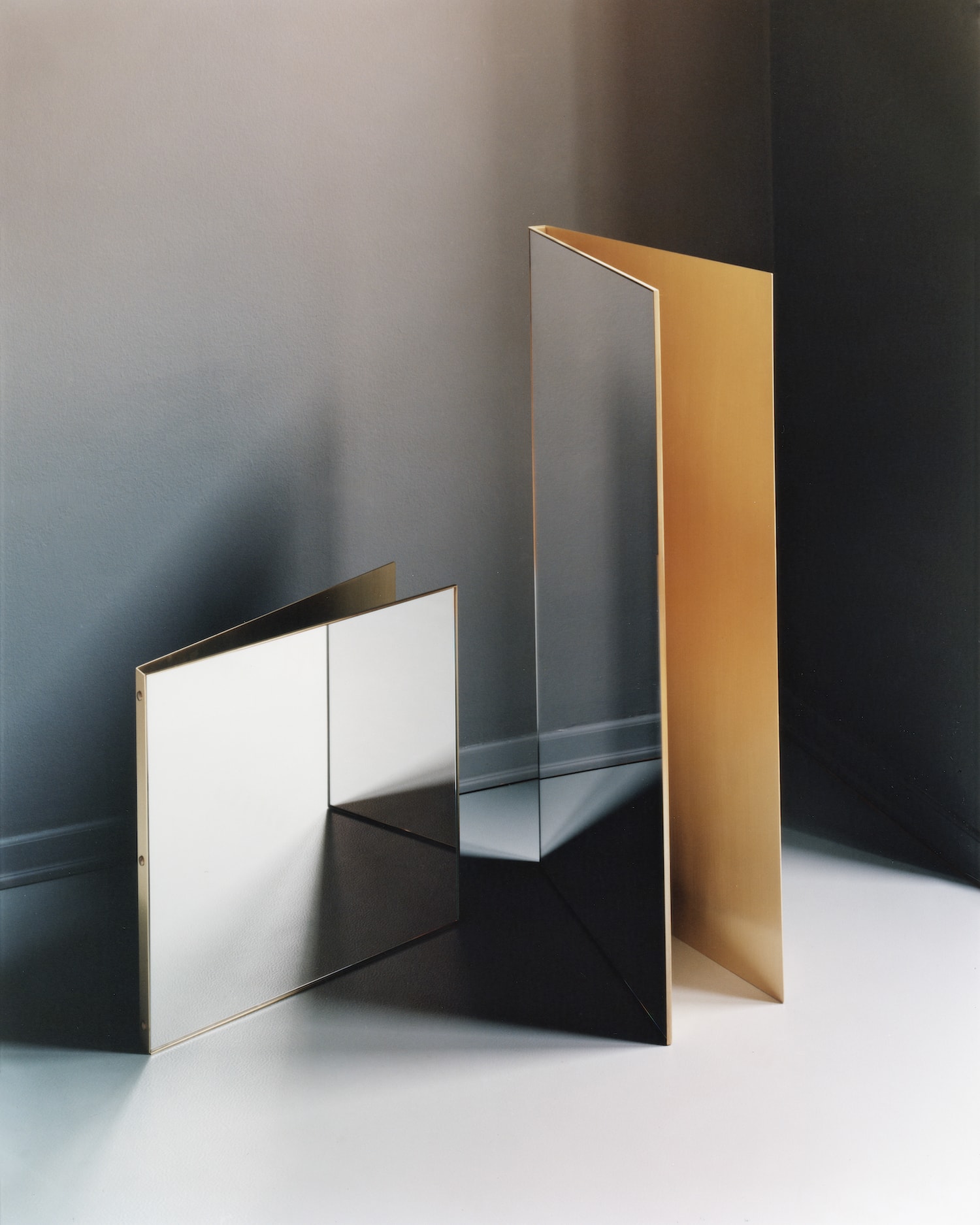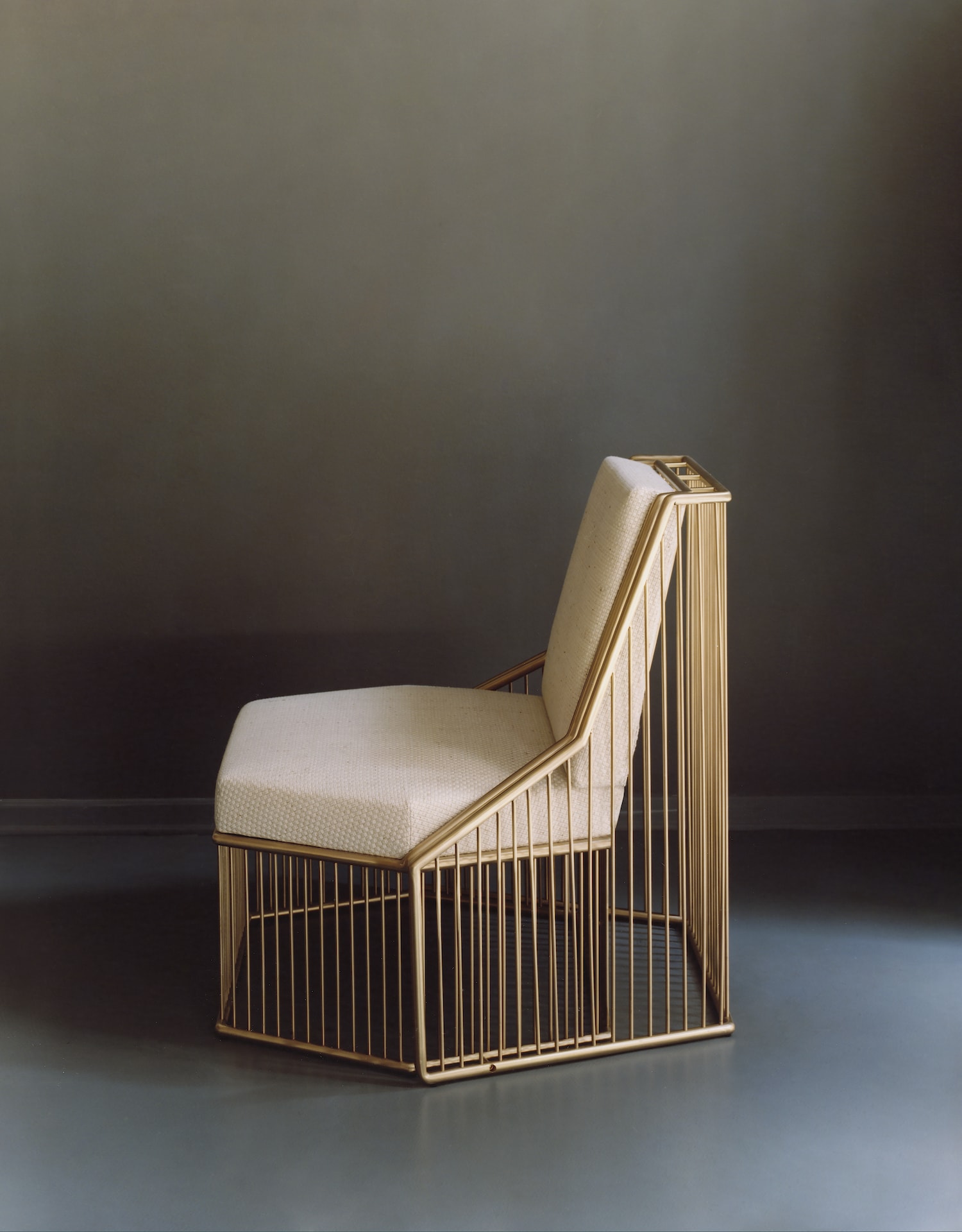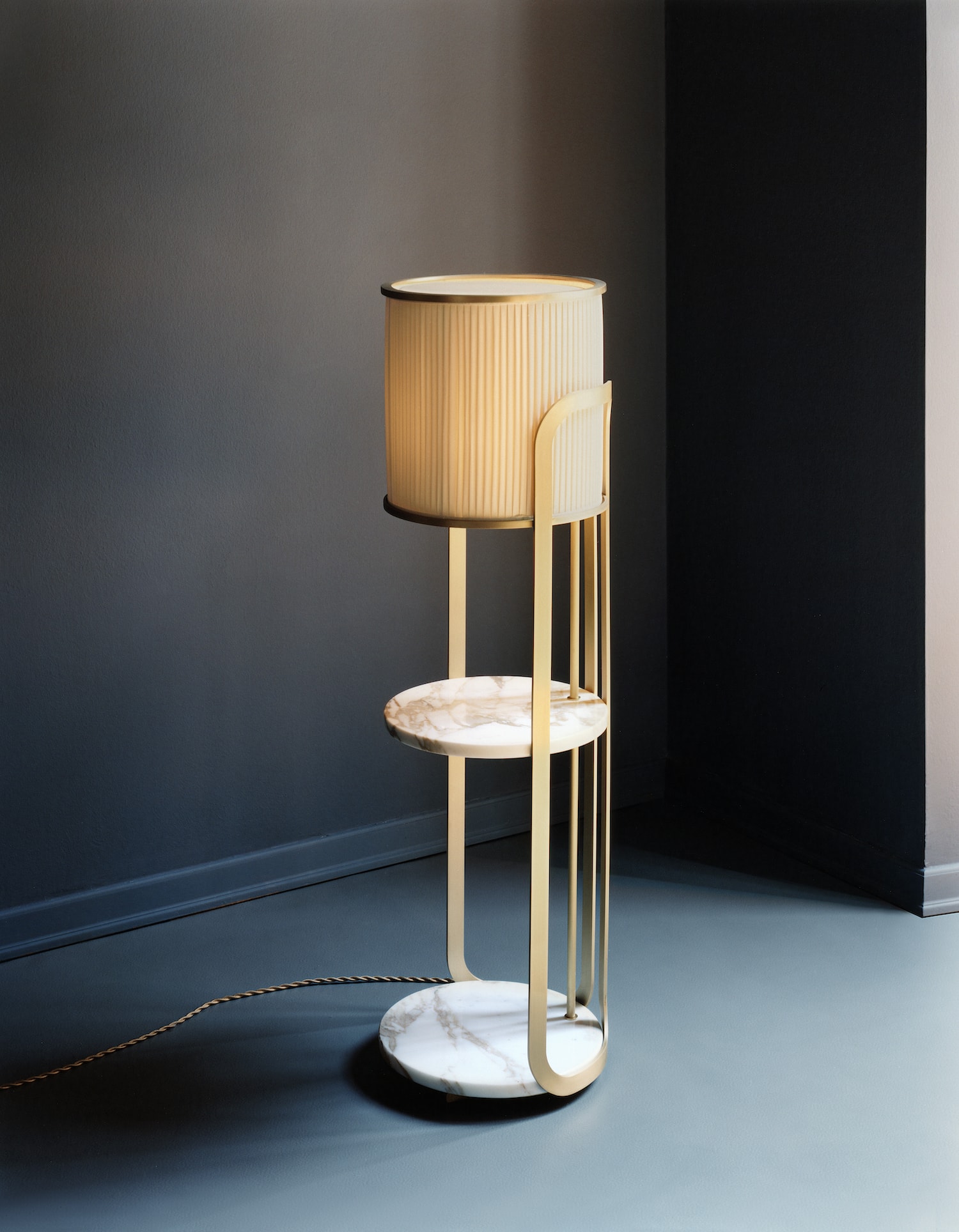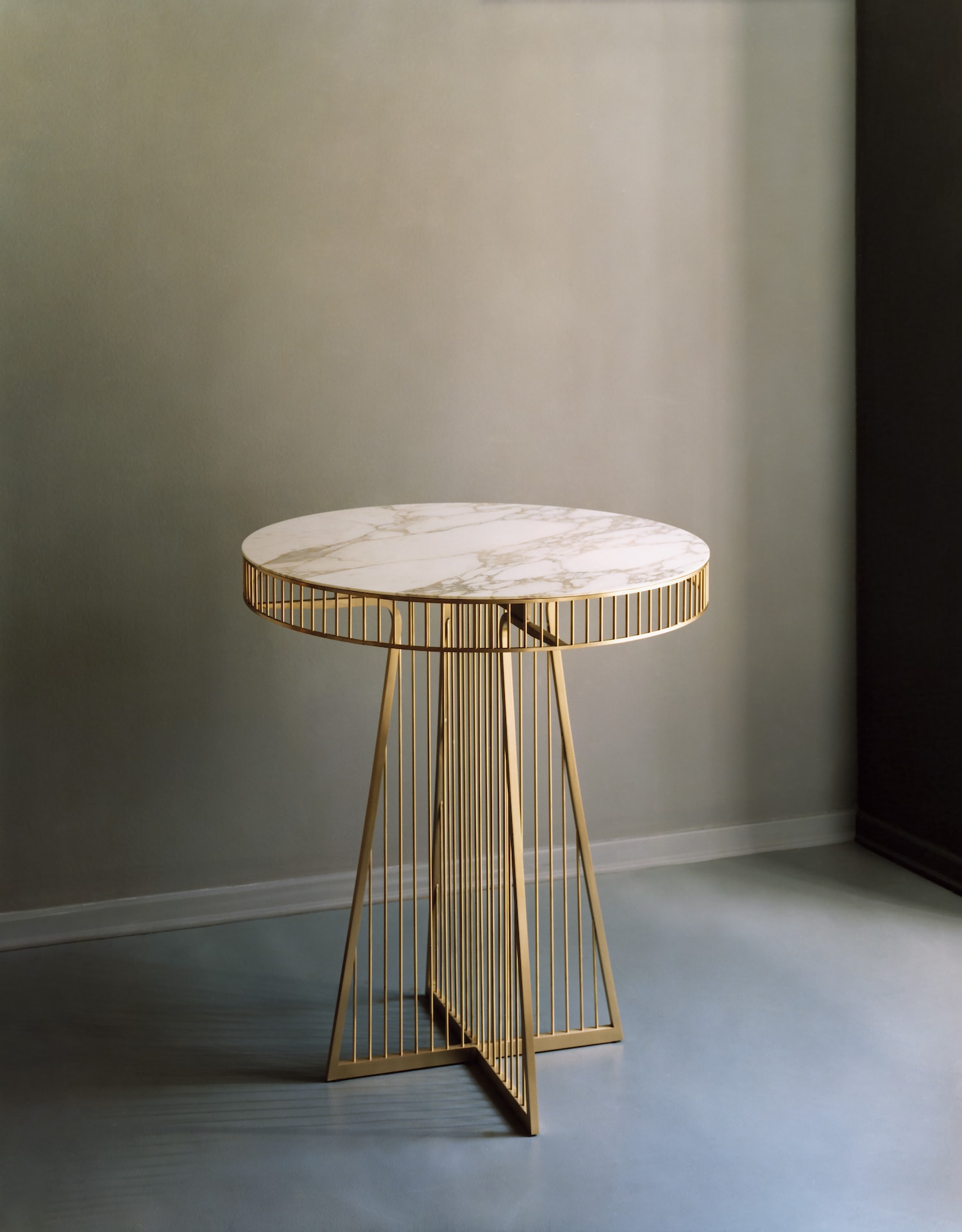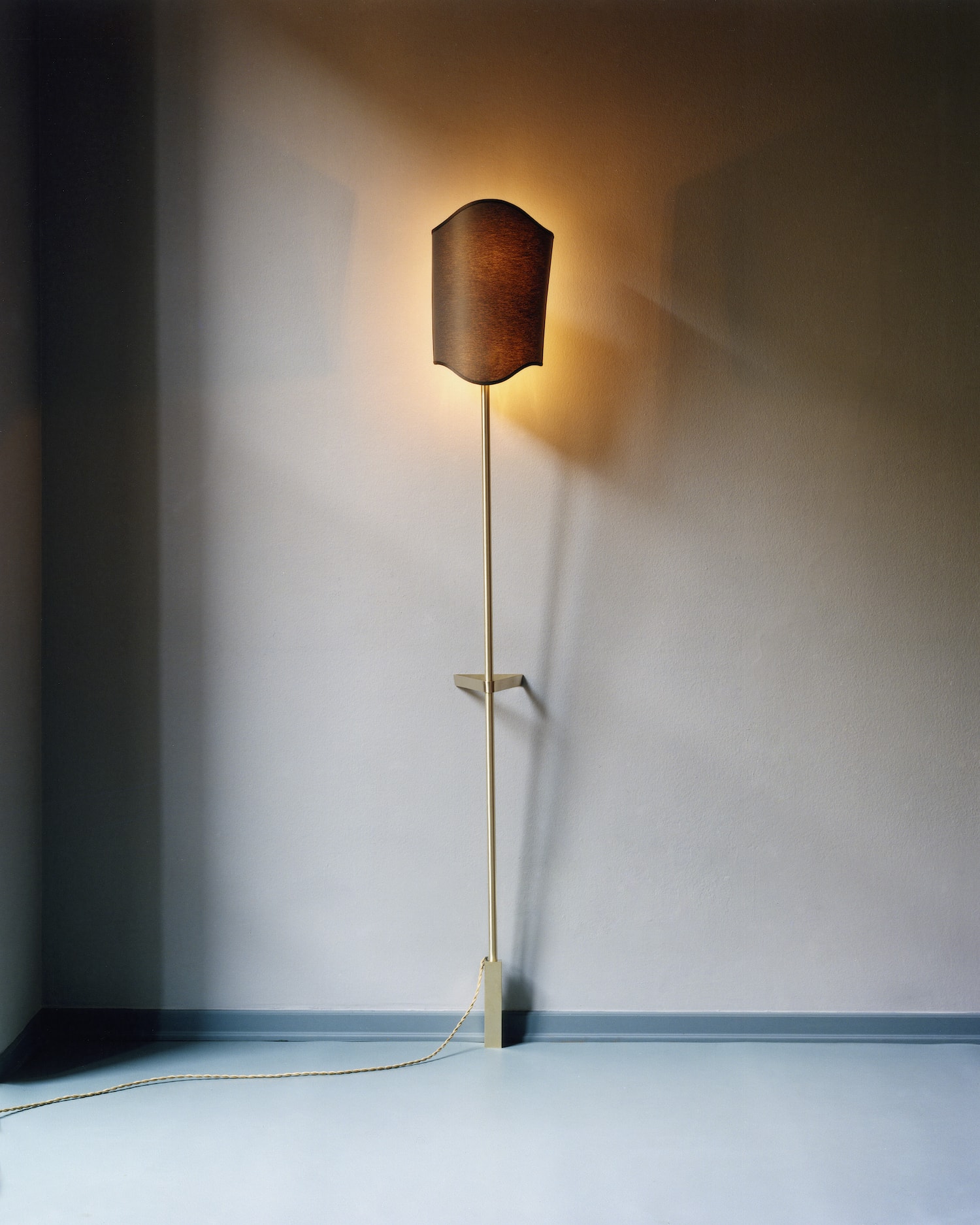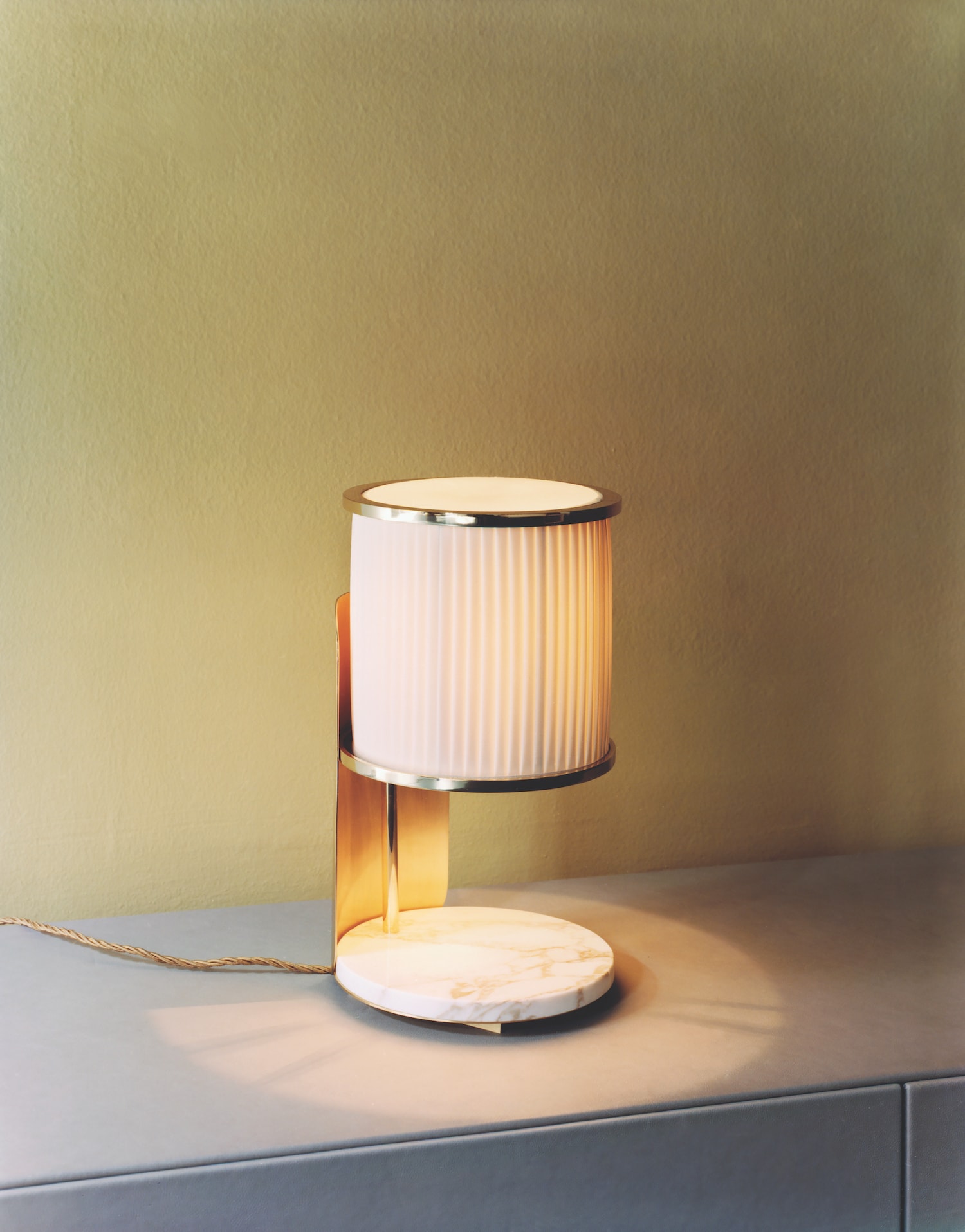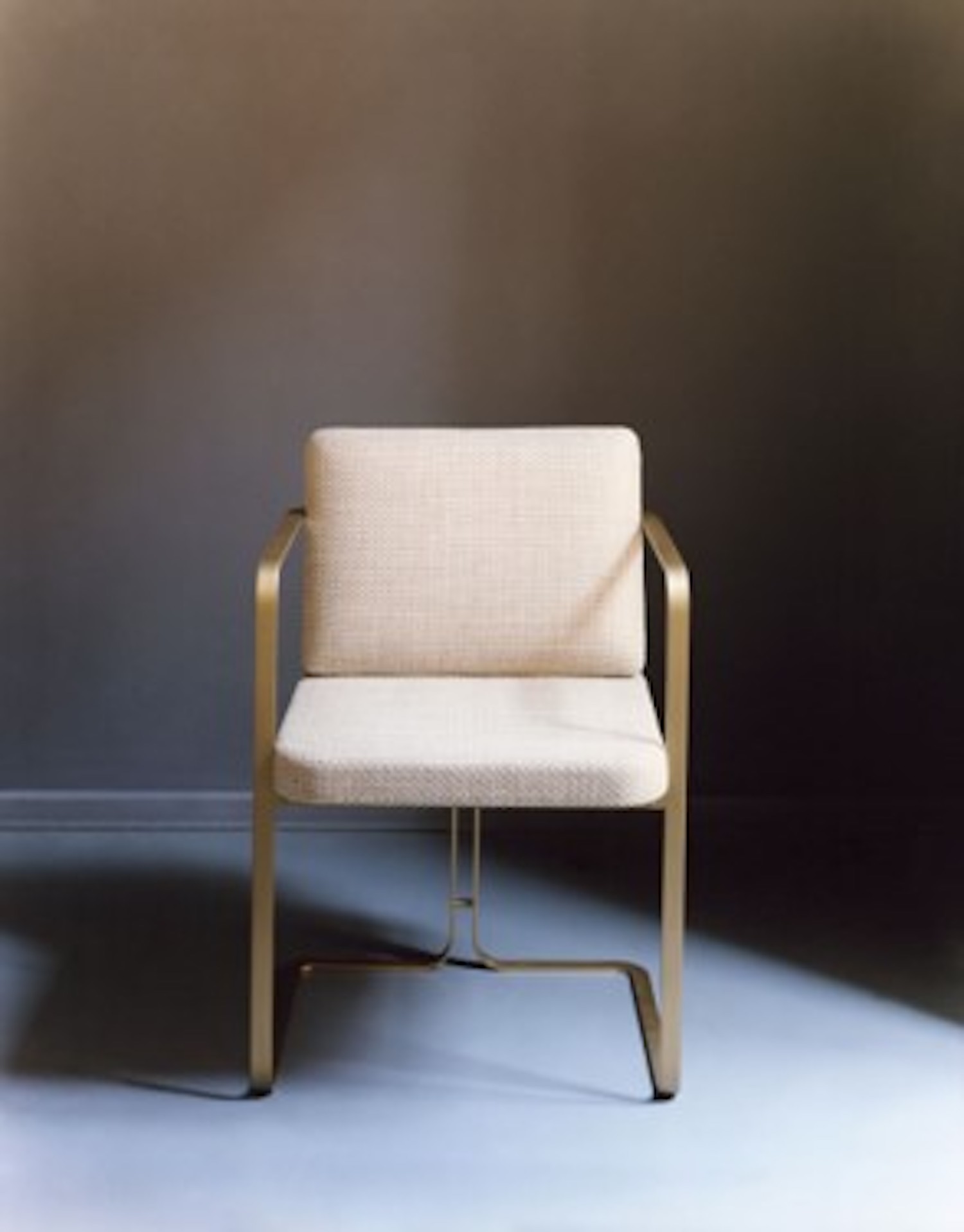Collection No V “Rooms” is a minimal design collection by the Milan and Paris-based designer Marta Sala and the Rome-based Lazzarini Pickering architecture firm. Marta Sala’s eponymous line Marta Sala Éditions (MSE) is the product of a lifetime immersed in Italy’s rich legacy of design and architecture. In 1947, Sala’s mother Maria Teresa Tosi co-founded iconic furniture company Azucena (bought in 2018 by the B&B Group) with her uncle, Luigi Caccia Dominioni and Ignazio Gardella, two of the country’s most prominent modern architects. MSÉ was founded in 2015, and quickly became known for its elegant and increasingly collectible furnishings.
Similar to her well-known uncle, Sala believes that architecture is the foundation of all design, and furniture is much like a dialogue. Claudio Lazzarini and Carl Pickering, who share this same vision, were the perfect choice for the collaborative collections, which include seating, tables, lighting, and several home objects. In the spirit of iconic Italian design, the range marries modernist lines with sumptuous details, a strong sense of color, and unexpected materials. It’s a hybrid that Sala likes to call “the secret soul of useful things.”
Given her background, Sala functions as the curator and connector, realizing the brief of the architects and finding the correct craftspeople to create world-class pieces. “We are very spoiled around Milan,” Sala says. “We have this unique combination between handcraft and technical support that gives an incredibly high standard of quality, but is still full of soul due to the human application on each piece. I personally deal with production because I know exactly what I want and how to optimize the knowledge of the architects and craftsmen.”
Many of the collection’s pieces are tailor-made to fit contemporary life, some combining multiple functions in a single piece. In this spirit, a lamp does triple duty as a screen and table. Seating is modular and adaptable, suitable to a range of commercial and residential environments. “Before design used to instruct people how to sit, stand and eat. Now we have to offer a product that is useful and modular and able to answer different needs and spaces,” says Sala. The pieces echo the ethos of Sala’s uncle Caccia Dominioni, who saw design, architectural and urban planning as an integrated whole. According to Sala, this approach “gives each piece a unique solution and strength.”
